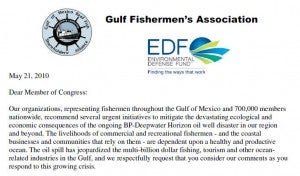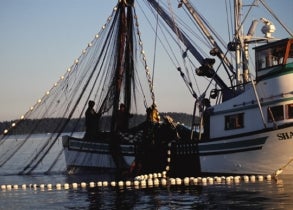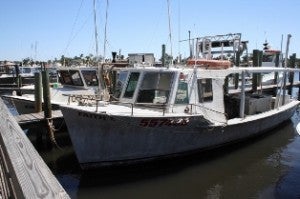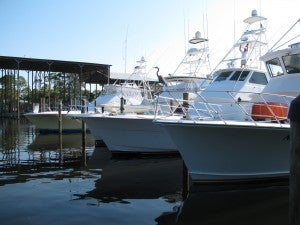Although the oil spill in the Gulf continues to worsen, there’s a bit of good news for Gulf fishermen and fishing-related businesses. The Senate last night approved an amendment by Sen. Richard Shelby (R-AL) that would devote $26 million to support fishermen and to improve fisheries science because of the spill.
The House still has to vote on the measure, so more critical funding could be added before its finalized and sent to the President. Earlier this week EDF signed a letter to Congress and the President with the Gulf of Mexico Reef Fish Shareholders’ Alliance and the Gulf Fishermen’s Association that advocated for at least $100 million in funding for direct assistance to adversely affected commercial and recreational fishermen and fishing communities, to improve fisheries science, and to make fisheries more resilient to harm caused by human activities. Because of the size of this disaster, we see this as just a good start, and we are working to expand the scope and increase the amount over the long-term.
The amendment includes $15 million for fisheries disaster assistance, $10 million for stock assessments, and $1 million for a study on the impacts from the spill on the Gulf ecosystem. Here’s the specific language.
(1) FISHERIES DISASTER RELIEF.–For an additional amount, in addition to other amounts provided in this Act for the National Oceanic and Atmospheric Administration, $15,000,000 to be available to provide fisheries disaster relief under section 312 of the Magnuson-Stevens Fishery Conservation and Management Act (16 U.S.C. 1861a) related to a commercial fishery failure due to a fishery resource disaster in the Gulf of Mexico that resulted from the Deepwater Horizon oil discharge.
(2) EXPANDED STOCK ASSESSMENT OF FISHERIES.–For an additional amount, in addition to other amounts provided in this Act for the National Oceanic and Atmospheric Administration, $10,000,000 to conduct an expanded stock assessment of the fisheries of the Gulf of Mexico. Such expanded stock assessment shall include an assessment of the commercial and recreational catch and biological sampling, observer programs, data management and processing activities, the conduct of assessments, and follow-up evaluations of such fisheries.
(3) ECOSYSTEM SERVICES IMPACTS STUDY.–For an additional amount, in addition to other amounts provided for the Department of Commerce, $1,000,000 to be available for the National Academy of Sciences to conduct a study of the long-term ecosystem service impacts of the Deepwater Horizon oil discharge. Such study shall assess long-term costs to the public of lost water filtration, hunting, and fishing (commercial and recreational), and other ecosystem services associated with the Gulf of Mexico.
IN GENERAL.–Of the amounts appropriated or made available under Division B, Title I of Public Law 111-117 that remain unobligated as of the date of the enactment of this Act under Procurement, Acquisition, and Construction for the National Oceanic and Atmospheric Administration, $26,000,000 of the amounts appropriated are hereby rescinded.
Never miss a post! Subscribe to EDFish via a email or a feed reader.













